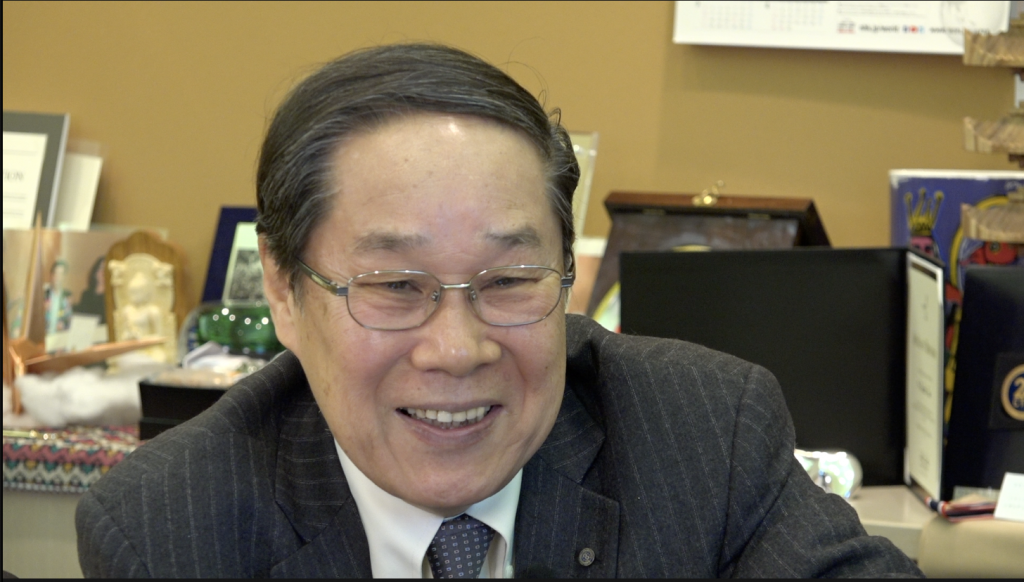Dr. Masao Tomonaga is the honorary director of the Japanese Red Cross Nagasaki Atomic Bomb Hospital and a hibakusha, an atomic bomb survivor. He studied internal medicine and hematology at the Nagasaki University Medical School. Throughout his career he has explained and studied the medical consequences of the atomic bombs, including radiation exposure, cancers, depression, and post-traumatic stress disorder.
Currently, he runs a retirement home for older hibakusha. He is also the Chairman of the Nagasaki Global Citizen’s Assembly for the Elimination of Nuclear Weapons. He advocates that nuclear weapons “should not be produced any more, should never be used again and ultimately abandoned forever.”
To view a 2019 interview with Tomonaga, conducted by the Atomic Heritage Foundation, please click here.
For more on Masao Tomonaga please click here.





